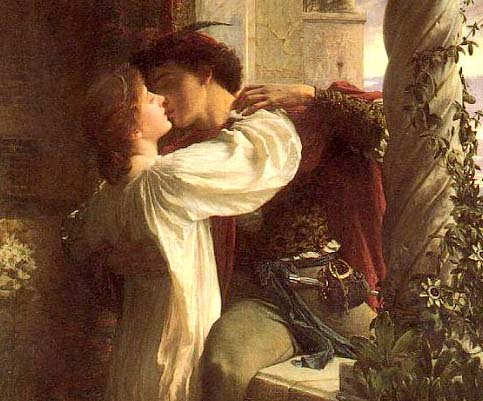
Act I Scene II
| Capulet: |
| "And too soon marr'd are those so early made. |
| The earth hath swallowed all my hopes but she,— |
| She is the hopeful lady of my earth: |
| But woo her, gentle Paris, get her heart, |
| My will to her consent is but a part; |
| An she agree, within her scope of choice |
| Lies my consent and fair according voice. |
| This night I hold an old accustom'd feast, |
| Whereto I have invited many a guest, |
| Such as I love; and you among the store, |
| One more, most welcome, makes my number more. |
| At my poor house look to behold this night |
| Earth-treading stars that make dark heaven light: |
| Such comfort as do lusty young men feel |
| When well apparell'd April on the heel |
| Of limping winter treads, even such delight |
| Among fresh female buds shall you this night |
| Inherit at my house; hear all, all see, |
| And like her most whose merit most shall be: |
| Which, among view of many, mine, being one, |
| May stand in number, though in reckoning none. |
| Come, go with me.—Go, sirrah, trudge about |
| Through fair Verona; find those persons out |
| Whose names are written there,[gives a paper]and to them say, My house and welcome on their pleasure stay." |
In his monologue Capulet, Juliet's father is discussing his feelings and requests in regards to Juliet's planned marriage. Paris has asked for Juliet's hand in marriage, and while Capulet agrees to the arrangements, he wants Juliet to have a say in the decision as well. He wants Paris to win over Juliet's heart and love, rather than sending her off into a devastating marriage. He requests that the engagement will last for at least 2 years, considering that Juliet, at this point is only 14 years of age.
He then announces that Paris can begin to introduce himself to Juliet that night, because the Capulet's will be having a feast.
From this monologue the reader learns of several important facts for the plot, such as Juliet's age, her relationship to her father, and there will be an important party on that night. The reader also meets Paris here, who isn't a major character, but a major problem.
Towards the end of his monologue Capulet describes the spring feelings that will be seen and felt by most at the feast that night. He calls the men "lusty" and the women "fresh." With this he explains that the feast will be one where lovers meet, and by this he means Paris ans his daughter Juliet. Although it will be a feast for lovers, it will not be one for Paris and Juliet.



No comments:
Post a Comment